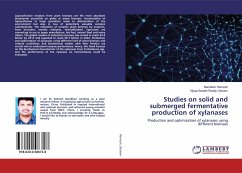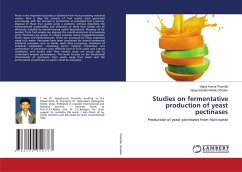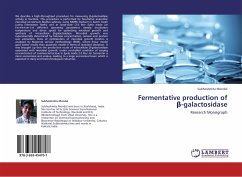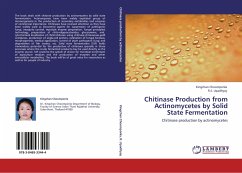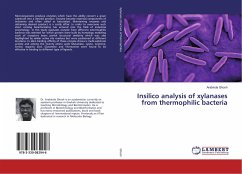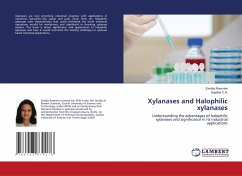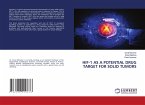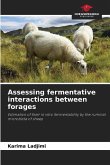Lignocellulose residues from plant biomass are the most abundant biopolymer accessible on globe as waste biomass. Accumulation of lignocellulose in large quantities leads to deterioration of the environment but also in loss of potentially valuable complex carbohydrates. The utilization of complex plant polymer by enzymes, from microbes, namely celulases, hemicellulases, ligninases are converting to use in paper manufacture, bio-fuel, animal feed and many others. The global market of industrial enzymes was closed to reach $4.4 billion by 2015 and expected to reach $6.2 billion in 2020. Production and optimization of xylanases using different kind of plant biomass and cultural conditions; and biochemical studies with their kinetics are crucial role to understand enzyme performance. Hence, this book focuses on the biochemical characteristic of the xylanases from Trichoderma spp. and the performance of the xylanase on hemicellulase could be evaluated.
Bitte wählen Sie Ihr Anliegen aus.
Rechnungen
Retourenschein anfordern
Bestellstatus
Storno

